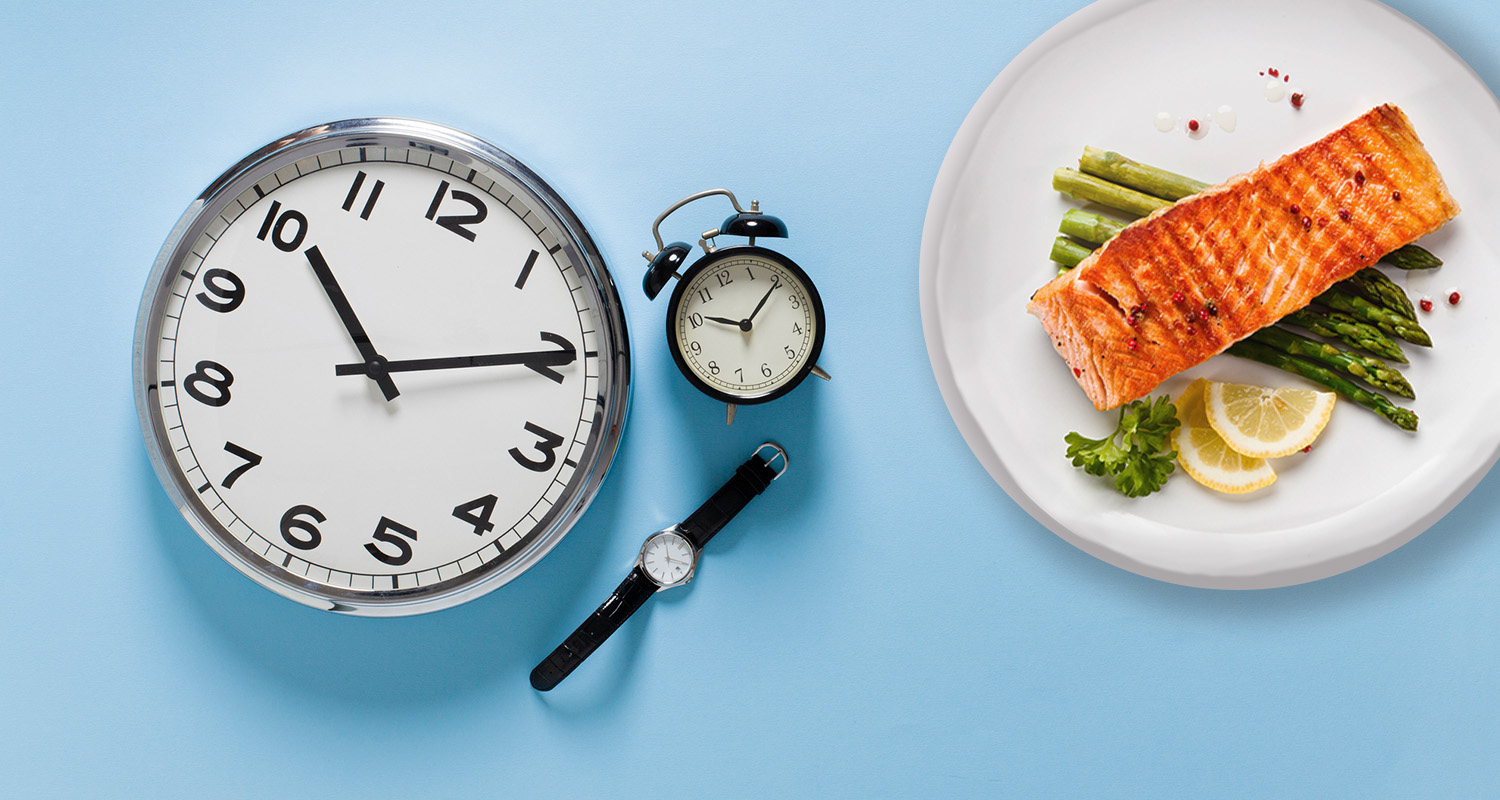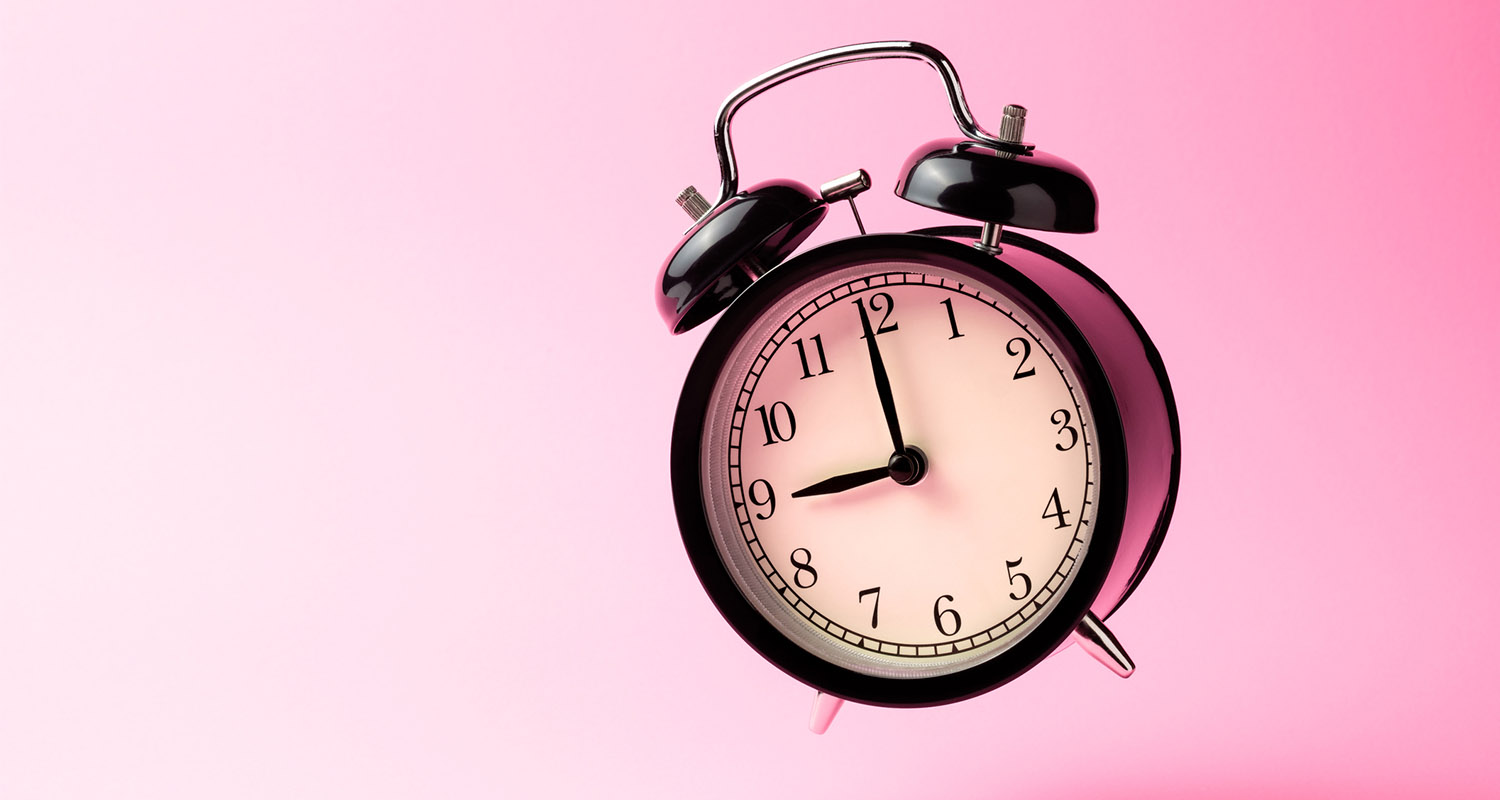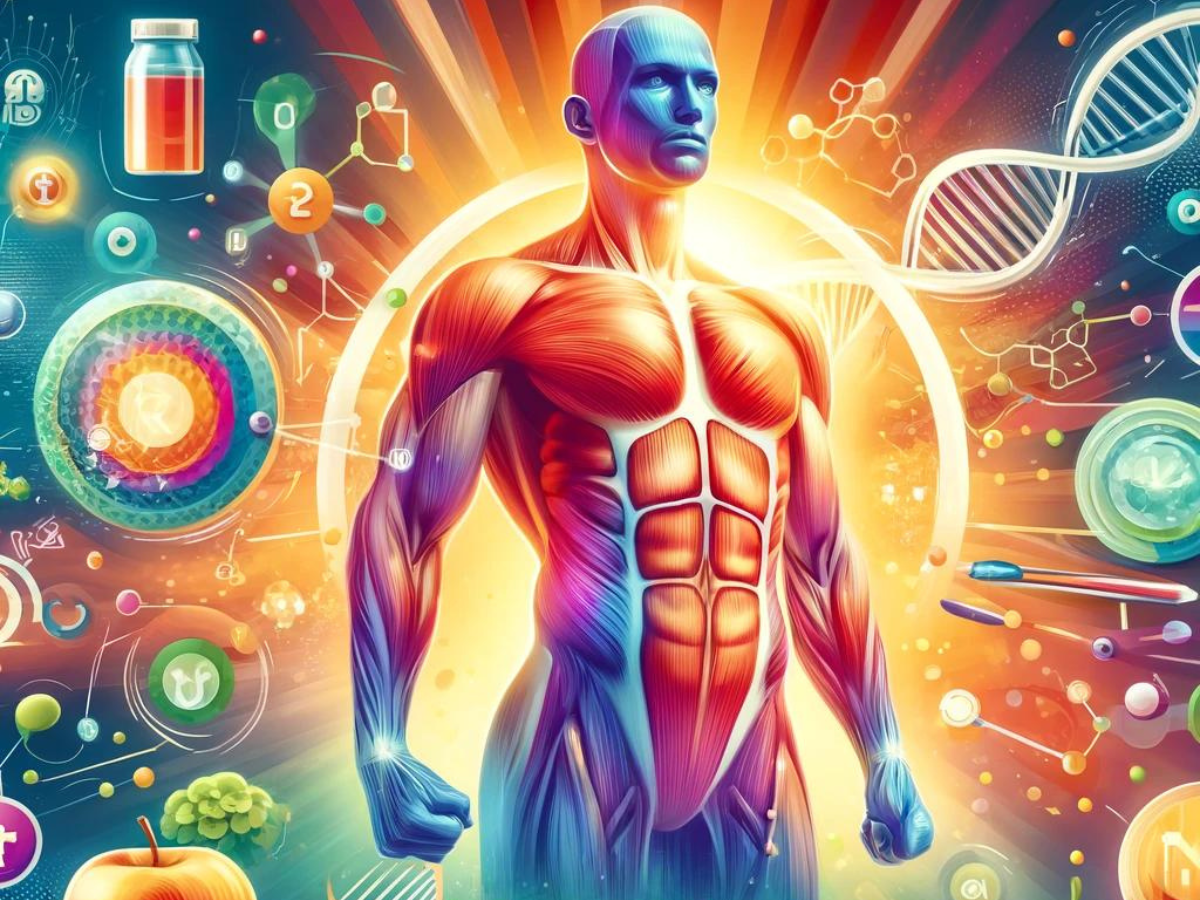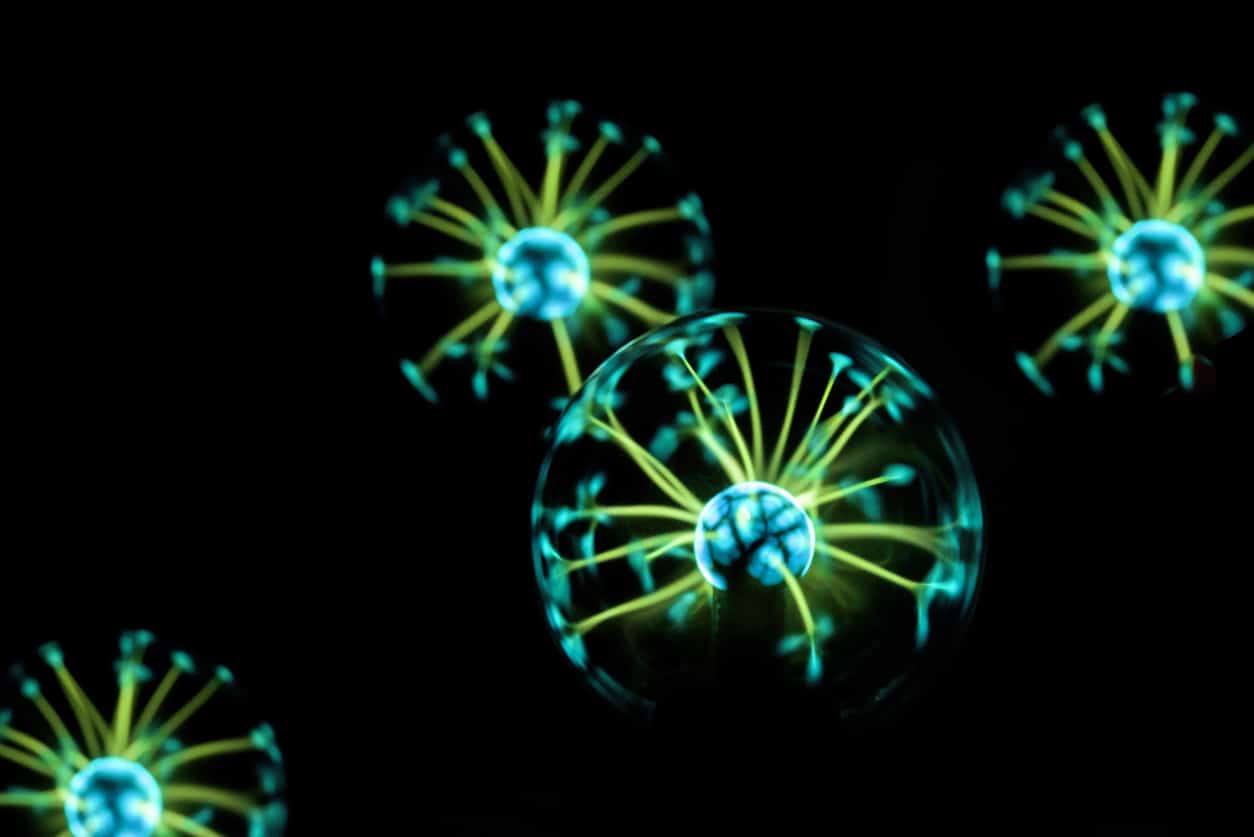
- Meal timing has a major effect on your biology. New research has found that people who eat late at night have a 20 to 25 percent higher risk of cancer.
- To minimize your cancer risk, eat your last meal before the sun goes down and wait at least two hours before going to sleep.
- The perfect meal timing combines fasting with going to bed on an empty stomach. See below for a guide and example.
- If you have trouble sleeping through the night — especially if you wake up between 3am and 5am — you may want to take a little Brain Octane Oil, raw honey, and grass-fed collagen before bed to stabilize your blood glucose levels. It probably won’t affect you the way a full meal does, and sleeping through the night decreases your cancer risk a lot too.
- For the rest of us, no more midnight snacks! But you knew that already, didn’t you?
When you eat is just as important as what you eat. That’s why things like Bulletproof Intermittent Fasting help you lose weight without cutting calories. By not eating your first meal until 12pm, you keep yourself in a fasted fat-burning state for most of the day.
And according to new research, you don’t want to eat too close to bedtime either. Eating certain foods at night can mess with your internal clock and compromise your sleep. On the other hand, if you cut out late-night snacking, and don’t eat just before bed, you can reduce your risk of hormonal cancers like breast cancer and prostate cancer by up to 25 percent.[ref url=”https://onlinelibrary.wiley.com/doi/abs/10.1002/ijc.31649″]
Instead of a big meal before bed, use my sleep hacks below to stabilize your blood glucose while you sleep and improve your sleep quality.
Eat dinner before sun down to reduce your cancer risk

- People who ate their last meal 2 hours before bed had a 20-25 percent lower risk of cancer than those who went to bed shortly after eating
- People who ate their last meal before 9pm had a 20 percent lower risk of cancer than those who ate after 10pm
So to minimize cancer risk, you want to eat before sundown and wait at least two hours after you eat to go to sleep. Meal timing has a profound effect on your biology. You can hear more about this in my interview with Satchin Panda, PhD, Professor at Salk Institute and author of the book, “The Circadian Code” on this Bulletproof Radio podcast episode.
Combine intermittent fasting with early dinner for maximum resilience
Ideally, you want to include intermittent fasting in your daily eating schedule. Intermittent fasting is ridiculously good for you, and if you fast with Bulletproof Coffee you can still get most of the benefits without any of the hunger.
Also, make sure you have your last meal at least two hours before bed. Ideally, you’ll eat all your calories for the day in a 6-hour window that ends before sun down. Here’s a sample day that includes Bulletproof Intermittent Fasting and high-fat, low-carb, nutrient-dense Bulletproof meals. It ends early enough to keep your cancer risk low, too.
8AM: Bulletproof Coffee
12PM: Wild baked salmon with asparagus and kale
5 PM: Keto hamburger salad
6 PM: Thai marinated skirt steak with creamy mashed sweet potatoes
Eating all your meals between 12pm and 6pm leaves you fasting for 18 hours a day, which is the sweet spot you want to maximize the benefits of intermittent fasting. Regular short-term fasting will transform your health:
- Intermittent fasting helps you live longer and reduces risk of death from all causes[ref url=”https://www.sciencedirect.com/science/article/pii/S0092867415001865″]
- It increases fat burning and helps you lose weight quickly[ref url=”https://www.ncbi.nlm.nih.gov/pubmed/22889512″]
- Fasting gently stresses your cells, and they respond by becoming more resilient and efficient[ref url=”https://www.ncbi.nlm.nih.gov/pmc/articles/PMC2253665/”]
- Fasting also triggers autophagy in your brain, which is when your brain cells clean out damaged or old parts and replace them with shiny new ones[ref url=”https://www.ncbi.nlm.nih.gov/pubmed/20534972″]
Meal timing clearly has a major impact on your body and brain, and combining fasting with going to bed on an empty stomach will make you as resilient as possible.
What if you have trouble sleeping on an empty stomach?

If you find yourself waking up between 3am and 5am and you have trouble falling back asleep, it’s probably still worth your time to stabilize your blood sugar before bed.
Your brain uses a huge amount of energy to encode memories and repair itself while you sleep. For some people, the brain’s nighttime energy demands cause a blood sugar dip in the early morning. When your blood sugar dips, your body spikes cortisol (the stress hormone) around 3am to tell you to wake up and find food.
If this sounds familiar, you can eat a couple things before bed to stabilize your energy supply at night.
- A tablespoon of Brain Octane Oil will fuel your brain with ketones while you sleep
- A small amount of raw honey an hour before bed will give energy to brain cells that can’t use ketones[ref url=”https://www.ncbi.nlm.nih.gov/pmc/articles/PMC3790936/”] (Usually you want to avoid sugar, but a little honey before bed provides quick energy, and the mild sugar crash that comes an hour after you eat it can actually help you fall asleep.)
- A tablespoon of grass-fed collagen provides sustained energy, as well as glycine, proline, and hydroxyproline, three of the specific amino acids your body uses to repair soft tissue[ref url=”https://www.ncbi.nlm.nih.gov/pubmed/28929384″]
There’s no research on whether this sleep-hacking protocol affects cancer risk, but I believe that because you’re taking such small amounts and they’re so easy to digest that they don’t have the same impact of a full meal.
Plus, these techniques are specifically for people who wake up around 3am and have trouble going back to sleep. You should prioritize sleeping through the night — people who keep a regular circadian rhythm have a much lower risk of cancer.[ref url=”https://www.ncbi.nlm.nih.gov/pubmed/21870422″] If you listen to the interview on Bulletproof Radio with T.S. Wiley, author of “Light’s Out,” it’s obvious the link between getting bad sleep and cancer is undeniable.
For the rest of us, no more midnight snacks. But you knew that already, didn’t you?










